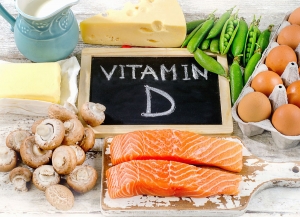Is forgetfulness, faulty memory, or even dementia hardwired into the brain’s destiny as we age?
Some scientists think that terrifying idea may hold some truth; but hope lies with scientists who are studying just the opposite question:
What can we do to protect brain health, particularly as we get past age 40 and progress into the older adult years?
One important area of research is the role of nutrition for a healthy older adult brain. What we are leaning is that, indeed, key nutrients and dietary habits can help protect the integrity and longevity of brain cells and nerve pathways.
Let’s learn a bit more about how older adults should eat to nourish a healthy brain!
Dementia:What Happens to the Brain?
Scientists believe the dementia disease process begins when protein builds-up in brain tissue, causing damage to nerve cells. This evolves over a period of many years (sometimes as much as 10-20 years) before symptoms show up. Genetics, lifestyle, dietary habits, and environmental factors influence the onset of dementia and the rate of deterioration for each person is different for each person.
Since research shows a variety of factors influence the development of the dementia, it’s important to learn what factors you have the ability to exert some control over—to potentially alter your brain’s destiny, such as
- Keeping your heart & lungs fit with aerobic activity e.g., walking, swimming, cycling
- Keeping your muscles limber & strong with activities like yoga, strength training, tai chi
- Managing stress through relaxation and mindfulness techniques
- Cultivating resilience and optimism
- Maintaining a consistent, healthy sleep routine
- Eating a nutrient rich diet to support the brain (and the body!)
Keep in mind, the earlier in life you establish these habits, the better your overall health will be and the better the protection you give to your nervous system and brain. Let’s take a closer look at smart eating for older adults.
Nutrition Tips for Brain Health in Older Adulthood
Choosing fresh, high quality, and nutrient rich foods is the foundation for eating for brain health. Whole foods (not boxed, packaged, and processed), provide the greatest nutrient density and it is nutrients that work in your cells to exert healthy effects on organs and tissues in the body. Plus, fresh food simply tastes better!
- Select organic foods when you can because this will decrease the food having been exposed to toxins that exist in conventional farm soil and processing methods.
- Limit your intake of caffeine, sugar, and alcohol which can draw nutrients away from the cells and flush them out of your body before the bodyhas a chance to absorb them.
Key Nutrients Older Adults Need for Brain Health
Omega-3 Fatty Acids (fish oil) help reduce inflammation in the body; this includes nourishing and protecting brain cells. Your body cannot make Omega-3 fatty acids, so you must get these nutrients from the food you eat or from a supplement. Omega-3 rich foods include salmon, tuna, halibut, krill, as well as flaxseed, chia seeds, and walnuts. Ideally, you want to take in 1000-2000 mg of Omega-3s for optimal health and brain support.
Vitamin B-6 is known to support the body’s ability to fight germs and produce energy, and it supports brain development early life. As we age, B6 is involved in more than 200 physiological interactions, but with age and typical changes to eating habits, we get less of this nutrient. Studies show high levels of homocysteine have been associated with different types of dementia and general cognitive decline. Vitamin B6 helps the body regulate levels of homocysteine in the blood, so it can support brain health. Foods rich in B-6 include chicken, salmon, nuts, chickpeas, and some fruits. A b-6 supplement should be discussed with your physician to be sure you don’t take too much.
Polyphenols are naturally occurring compounds in plants, which have antioxidant and anti-inflammatory properties. This means these plant chemicals help protect cells from inflammation and do a better job of reducing inflammation that does occur. To get your daily dose of brain-boosting polyphenols eat 5 servings a variety of colorful fruits and vegetables.
Probiotics have been getting a good deal of attention for the role they play in supporting gut health. You might have heard about the gut microbiota and the microbiome? Well, as it turns out a healthy gut supports the immune system, helping to keep undesirable bacteria levels low, and encouraging good bacteria to flourish. There’s also emerging research showing strong connections between gut health and brain health (known as the gut-brain-axis). It seems certain probiotics can protect from cognitive decline and/or support healthy cognitive function, but more conclusive evidence is needed. There are many strains of probiotics so it’s important to speak with your health provider about which probiotic supplement is best for your brain health concerns.
These are just a few of the key nutrients that support brain health for older adults. There are other vitamins and minerals, as well as herbs, that can support a healthy, aging brain. Please check-in with your healthcare provider for the approach for your healthcare needs.
Nourishing Mind and Body with Exceptional Amenities at Everbrook
At Everbrook Senior Living, you’ll find exceptional amenities to support your lifestyle. Our best-in-class dining venues provide our residents with nourishing, delicious meals. Our Wellness 4 Later Life offers a variety of activities, excursions, and hobbies to support a healthy mind, body, and spirit. Contact our care coordinators to learn more about our living options—or schedule a tour of one of our charming New England properties.
Resources
TED Radio Hour. “Lisa Genova: Can Alzheimer’s Disease be Prevented?”https://www.npr.org/2017/07/21/537016132/lisa-genova-can-alzheimers-disease-be-prevented
NIA.NIH.gov“What Causes Alzheimer’s Disease?”https://www.nia.nih.gov/health/what-causes-alzheimers-disease
NutritionData.com. Foods Highest in Total Omega-3 Fatty Acids. Ahttp://nutritiondata.self.com/foods-012140000000000000000.html?maxCount=20
Alzheimer’s Association. The Healthy Brain Initiative: A national public health road map to maintaining cognitive health. (published with the CDC).https://www.alz.org/national/documents/report_healthybraininitiative.pdf
Cederholm, T., Salem, N. & Jan Palmblad; ω-3 Fatty Acids in the Prevention of Cognitive Decline in Humans, Advances in Nutrition, Volume 4, Issue 6, 1 November 2013, Pages 672–676.https://doi.org/10.3945/an.113.004556





